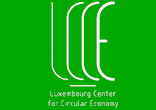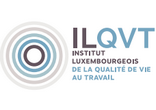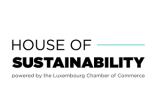
Neo-humanism : a new narrative for social and environmental sustainability
Environmental, social and economic challenges have proven an elusive task for modern societies. Part of the reason is that each challenge has been considered separately from the others.
For instance, attempts to overcome the economy’s tendency to stagnate increased greenhouse gas emissions, pollution, and deforestation to the extent that climate change is nearly irreversible. Similarly, the belief that well-functioning markets are the key to better lives has likely contributed to the erosion of social capital, intended as the fabric that keeps a society together and enables it to pursue shared goals. Reports indicate that loneliness, mistrust in others and in institutions are on the rise in many countries.
Neo-humanism proposes a holistic approach to overcome these challenges, a new culture to inform a cohesive reform of modern societies. Neo-humanism is a movement to put humankind and the environment back at the center of societies’ attention. It re-discovers the foundations of what makes a life worth living and proposes to organize modern societies accordingly. By organizing the knowledge from quality-of-life studies, neo-humanism argues that it is possible to establish a virtuous circle in which the explicit pursuit of well-being through policies, such as those for social capital, contributes to a socially and environmentally compatible economic growth.
People consume for various reasons, including defensive ones : each time we buy a bigger car to keep up with our neighbors, we purchase a holiday to escape from stressful jobs, we invest in security devices to protect our belongings, or we buy to compensate for the lack of time with our dear ones, we seek in the market a solution to our unhappiness. This sort of consumption is called defensive : the higher is our demand for defense, the more the economy grows. Thus, from the point of view of the market, happiness is undesirable because happy people do not consume.
Neo-humanism proposes to break this chain by promoting well-being through policies for social capital. People with rich social lives are more satisfied with their lives, tend to consume less, and to compare less with others. This, on one hand, reduces negative externalities of consumption to the benefit of the environment, and creates the conditions for cooperation and cohesiveness in happy societies.
Increased well-being, on the other hand, contributes to productivity, which is good for economic growth. Such growth, however, is driven by creativity, not defensive needs ; it may be slow, but is well suited to fit people’s needs. Most importantly, in such a future, people’s ability to enjoy life does not depend on the resources they own, and economic growth is a desirable but not necessary consequence of humans’ activity.
The change in culture advocated by neo-humanism is not easy, but possible. The preeminence of GDP in policy, social discourse, and the media has diverted attention from important aspects of people’s lives, such as their relationship with others and the environment. The erosion of the social and natural environments results from such myopic thinking. It is time to give happiness a chance.
Francesco Sarracino - Statec Research
This article is based on a working paper co-authored by Kelsey J. O’Connor (STATEC Research) which will soon appear in “Applied Research in Quality of Life”. The working paper can be downloaded here : https://www.iza.org/publications/dp/14980/neo-humanism-and-covid-19-opportunities-for-a-socially-and-environmentally-sustainable-world
Article published in the dossier of the month “Transmission in motion”






















